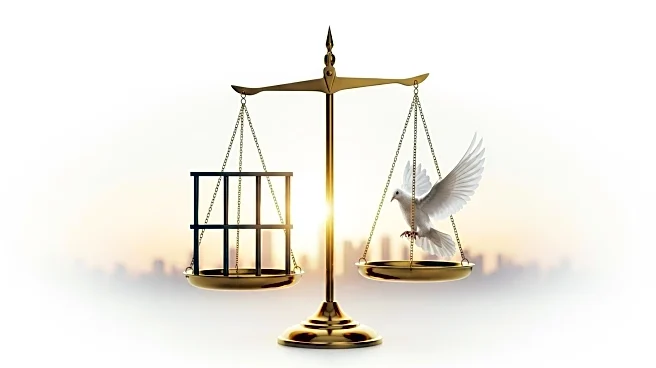What is the story about?
What's Happening?
The Israeli government has approved the addition of five names to the list of Palestinian prisoners set to be released as part of a cease-fire deal with Hamas. This decision follows the safe return of Israeli hostages from Gaza. Among those added to the list is Dr. Hossam Abu Safiya, director of the Kamal Adwan Hospital in northern Gaza, whose arrest in December 2024 drew international criticism. The list includes approximately 1,700 Gazans, with five designated as potential replacements if any scheduled for release are not freed. Prime Minister Benjamin Netanyahu and Defense Minister Israel Katz have the authority to release the prisoners, citing foreign relations and national security considerations.
Why It's Important?
The release of Palestinian prisoners is a significant gesture in the ongoing conflict between Israel and Hamas, potentially easing tensions and fostering goodwill with international stakeholders, including the United States. The inclusion of Dr. Abu Safiya, a symbolic figure due to his role during the IDF siege, highlights the humanitarian concerns surrounding the conflict. This move may influence Israel's diplomatic relations and its image on the global stage, particularly in light of accusations of war crimes and violations of international humanitarian law.
What's Next?
The decision to release these prisoners could lead to further diplomatic discussions and negotiations between Israel and international bodies, including the United Nations. The release may also impact future cease-fire agreements and the broader peace process in the region. Stakeholders such as the United States and other international entities may continue to monitor the situation closely, potentially influencing future policy decisions.
Beyond the Headlines
The release of Dr. Abu Safiya and other prisoners may have long-term implications for the humanitarian situation in Gaza, particularly concerning healthcare and civilian safety. The decision could also affect the perception of Israel's military actions and its adherence to international law, potentially leading to shifts in public opinion and policy both domestically and internationally.















